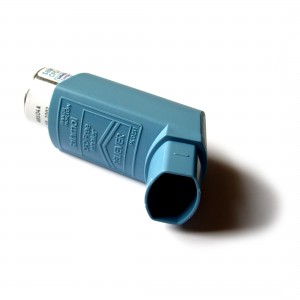 What Is Asthma?
What Is Asthma?
Asthma is a chronic airway disease. It occurs when the airways in your lungs become inflamed and constricted, causing breathing problems. Signs and symptoms include:
- Shortness of breath
- A wheezing sound when breathing
- Feeling of tightness or pain on the chest
- Excessive mucus production
- Trouble sleeping caused by shortness of breath, coughing, or wheezing
What Are “Asthma Attacks”?
Asthma attacks are episodes of increased asthma symptoms characterized by tightening of airways and difficulty breathing. An attack can start suddenly, and the level of severity varies each time and from person to person. Mild attacks are more common and usually go away in minutes after taking quick-relief medications. In more severe cases, the person may become breathless, and the situation can be life threatening. People with asthma should discuss with doctors how asthma attacks should be handled and are recommended to carry quick-relief medications (usually inhalers) at all times.
Who Gets Asthma?
About one third of asthma sufferers are under the age of 18. The cause of asthma is not fully understood, but a number of risk factors are found to increase an individual’s chance of developing this disease:
- A family history of asthma
- Frequent respiratory infections as a child
- Exposure to secondhand smoke
- Living in an environment with severe air pollution
- Frequent exposure to harmful chemicals
What Are Asthma Triggers?
People with asthma have inflamed airways that are sensitive to many things that do not bother other people. Staying away from these triggers helps to prevent asthma attacks:
- Allergens: dust, dust mites, pollens, molds, and household pets
- Irritants in the air: smoke from cigarettes, wood fires, or charcoal grills; strong odors from household sprays, paint, gasoline, or perfumes.
- Food items that you are allergic to.
- Respiratory infections such as cold, flue, sore throats, and sinus infections
- Strenuous exercise
- Strong emotions such as anger, fear, or excitement
Tips for Living with Asthma:
- Keep your home environment clean.
- Identify and avoid contact with your asthma triggers.
- Take your medications as prescribed. If you use an inhaler, make sure you know how to use it correctly.
- Recognize the symptoms of asthma attacks. The procedure to handle asthma attacks may vary depending on your medical condition. Ask your doctor for instructions.
- Always keep quick-relief medications with you.
- Monitor your asthma by using a “peak flow meter” to check your lung function.
- Let your doctor know if you think your asthma is worsening.
- Don’t let asthma keep you away from the sports or activities you love. A number of Olympic and professional athletes have asthma. Talk to your doctor about exercise guidelines.
For More Information on Asthma:
- American Lung Association: http://www.lung.org/lung-health-and-diseases/lung-disease-lookup/asthma/
- Asthma and Allergy Foundation of America: http://www.aafa.org/
- Chinese Community Health Resource Center
http://cchrchealth.org/en/healthinfo/materials/allergies_and_respiratory_health.html


